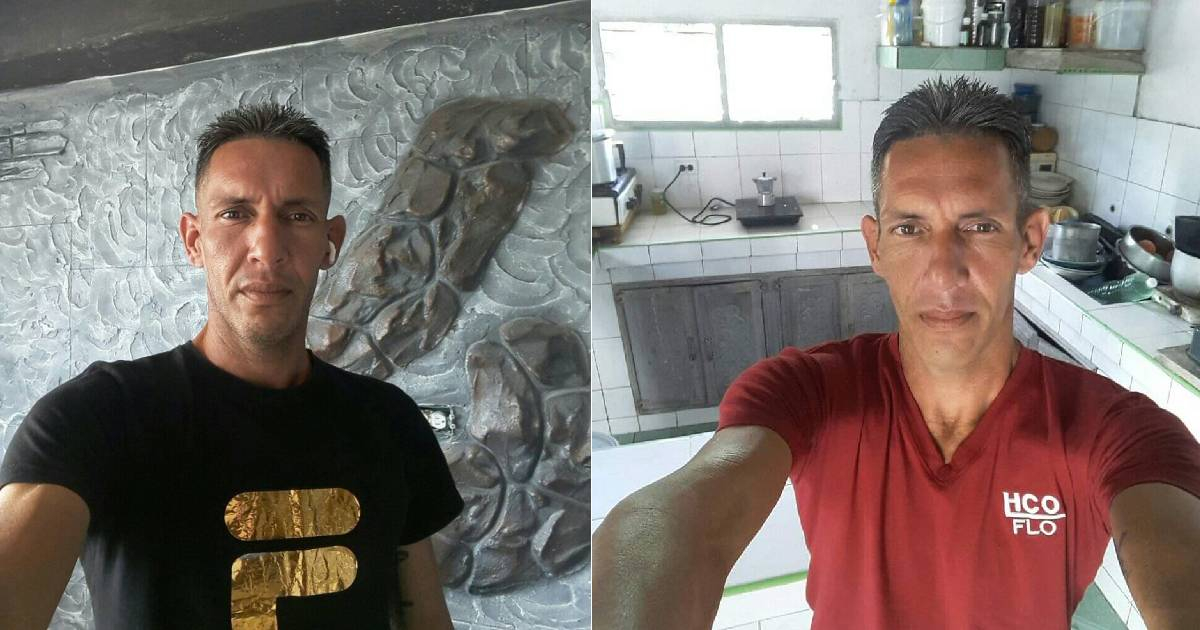Denis Frank Pacheco Rubio, a 42-year-old resident of Santa Clara, has been identified as another Cuban mercenary killed in the Russian invasion of Ukraine. His wife, who also lives in Santa Clara and wished to remain anonymous, confirmed the tragic news to Telemundo.
"He made the decision against his family's wishes. They promised him around $2,000 and a passport in exchange for working in Russian-occupied cities. However, the reality was different: he received 15 days of military training and was sent to the front lines," the distressed wife, who shares a daughter with the deceased, told the news outlet.
In a recent interview, Kirill Veres, a lieutenant colonel in the Ukrainian army, deepened the family's anguish by showing documents of Cubans enlisted in the Russian army and killed by Ukrainian forces.
"We received two Cubans who, unfortunately, were already dead. If they had been alive, I would have liked to meet them," the senior military officer told the Ukrainska Pravda newspaper. The officer also showed photos of identification documents of the two soldiers allegedly killed in combat on June 20th in eastern Ukraine, as reported by Telemundo.
These documents included an ID card and a driver's license, one of which belonged to Denis, while the other remains unidentified.
Like many Cubans in his situation, Denis had high hopes of escaping poverty and improving his family's life, especially for his eight-month-old daughter. His wife stated that he "only completed the mandatory military service in Cuba."
The anguish of this Cuban woman is compounded by the thought that her daughter will grow up without her biological father. "I don't know what I will tell her in the future when she asks about her dad. It's something I suffer every day. Although he didn't make the right decision, we need to know what happened to him, how he died, and under what conditions," she declared.
Santa Clara has seen a massive migration of young men enlisted by Moscow for the invasion of Ukraine. A month ago, Camilo Ochoa, a 34-year-old barber from the El Condado neighborhood in Santa Clara, was identified as one of the Cuban mercenaries killed in service to Russia. His sister, Bárbara Ochoa, who resides in Santa Clara, confirmed the tragic news to Martí Noticias.
"We know practically nothing about him. Our sister, who is in Russia, is handling all the paperwork. He had one month left to finish his contract in the war," she commented.
A month earlier, the death of Eduardo Montero Martínez, born on June 1st, 1978, in Cienfuegos, was reported.
Cuban families claim that many young men have been deceived with work contracts that promise construction jobs, only to be sent to the front lines upon arrival in Moscow.
Despite these ongoing complaints, the government has limited itself to denying involvement in such recruitment but has not hidden its sympathy for an act condemned by the international community. During a visit to Moscow, Cuban leader Miguel Díaz-Canel expressed to President Vladimir Putin his wishes for success in the invasion of Ukraine.
Frequently Asked Questions About Cuban Mercenaries in Ukraine
Given the tragic circumstances surrounding the involvement of Cuban mercenaries in the Russian invasion of Ukraine, many questions have arisen. Here are some frequently asked questions to provide clarity on the issue.
Why are Cubans being recruited to fight in Ukraine?
Many young Cubans are being lured by promises of financial rewards and better living conditions. They are offered contracts guaranteeing work in construction, but upon arrival in Moscow, they are sent to the front lines.
What has been the Cuban government's response to these allegations?
The Cuban government has denied involvement in the recruitment of Cubans for the war in Ukraine but has not hidden its support for Russia's actions, as evidenced by Miguel Díaz-Canel's statements during his visit to Moscow.
What are the risks faced by Cuban mercenaries in Ukraine?
Cuban mercenaries face significant risks, including inadequate training, being sent to the front lines, and the possibility of death in combat. The promises made to them often turn out to be false, leaving their families in a state of despair and uncertainty.
